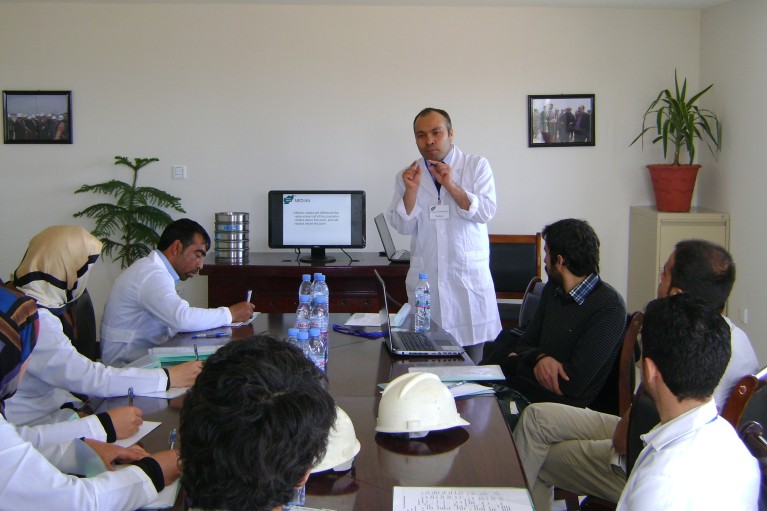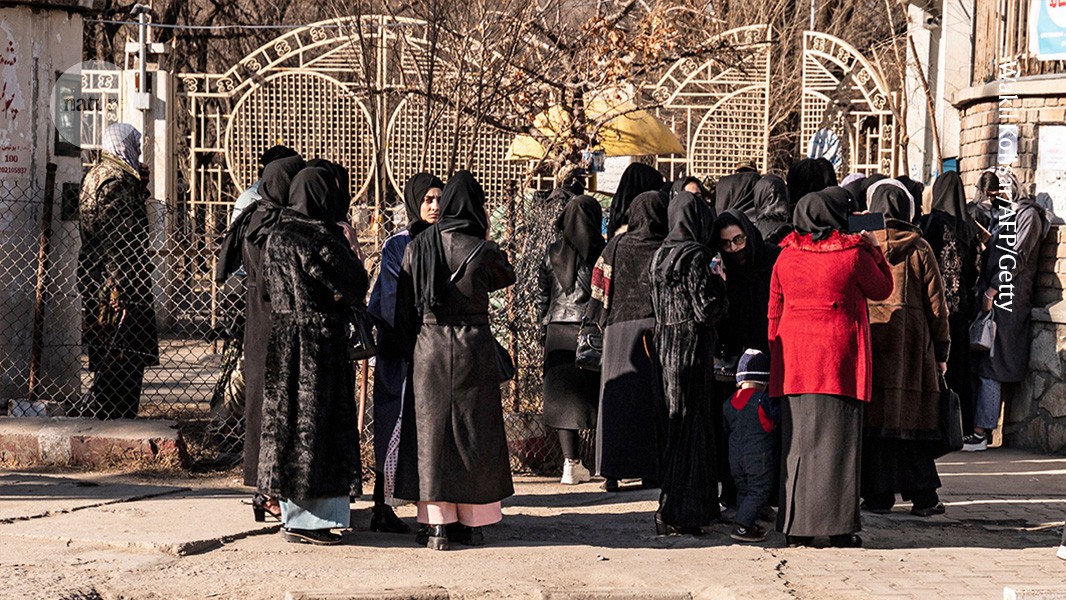Three years after the Taliban seized power in Afghanistan, some five million people have left the country, including many of the country’s scientists. Nature spoke to a handful of these refugee researchers and discovered that while most consider themselves lucky, they are anything but settled.
They worry about those that they left behind, about their visas expiring and having to choose between returning to a life-threatening situation or living as an undocumented person in a foreign land.
Their experiences also illuminate why many researchers, especially women, are among the millions who left the country, or are applying to leave, amid the humanitarian crisis that has gripped the country since the Taliban’s return to power.
More than 15 million people in Afghanistan needed emergency food or cash assistance in 2023, according to the World Food Programme. Women’s rights have deteriorated and girls are banned from education once they reach 12, albeit with some recent exceptions made for medicine. Female university staff are restricted from teaching.
New life
Clinical scientist Shekiba Madadi spent more than a year training in the laboratory at a research centre in Kabul, before the Taliban seized power on 15 August 2021.
Madadi planned on studying the effects of the herbal remedy hibiscus on alleviating morphine-withdrawal symptoms in rats — but that work was abruptly terminated. “The Taliban said that girls should not go to the research centre,” says Madadi. “I got very depressed.”
The first few months of the new regime were frightening. Everyone was scared and dared not leave home, she recalls. Eventually, Madadi started working at a private hospital, attending to female patients under the supervision of doctors, and making sure to cover her entire body except for the eyes, out of fear of the Taliban. Research at the university dwindled, including for the men, because of a lack of funding. Many researchers left the lab to work on public-health surveys, but the Taliban warned them against publishing anything critical of it, Madadi says.
Although some limited research is happening, researchers “feel unsafe publishing and sharing their analyses for fear of prosecution”, says Orzala Nemat, a political ethnographer and Afghan scholar at the international-development think-tank ODI in London.
In March 2023, Madadi crossed the border to Pakistan, to sort out paperwork for onward travel to the United States. She moved there in July 2023, through the support of a US programme. Madadi is now studying to qualify as a medical doctor and working at a private cardiac treatment centre.
Madadi considers herself lucky. Some of her friends in Afghanistan have left but are struggling to make enough money to support themselves and their families back home.
‘Prison’ passport
Afghanistan’s international isolation hit one researcher especially hard. The Taliban takeover didn’t just change her life, they “took my life”, says a researcher, whom we are calling Researcher A — she has asked to remain anonymous to protect her family. She was in her final year of medical school in Iran when the Taliban came to power, and couldn’t return home.
After graduating, Researcher A obtained a position in fetal medicine in the United States. But she still encounters problems while travelling. An Afghan passport, she says, is like being in prison. “You cannot go anywhere.” Added to that is the feeling that people have a negative perception of her nationality. This was echoed by other researchers that Nature spoke with.
Despite these difficulties, Researcher A continues to support young female medical students in Afghanistan who were shut out of universities. She organizes virtual training sessions on topics from writing research proposals to preparing questionnaires for reproductive-health surveys. Her students have collected responses from some 600 women at hospitals across Afghanistan. Their manuscript is under review by a journal.
Many students have been taking online classes provided by international institutions. And there have been plenty of opportunities. For example, since 2023, India has offered 1,000 online scholarships to Afghan undergraduates and postgraduates. However, with no real job prospects, female students are getting frustrated, Researcher A says. Her sister, who is still in Afghanistan, has racked up online course certificates, but often asks: “What are all these classes going to end in?”
Even if the Taliban were to leave the country soon, “it will take a very, very long time for this country to just start again”, she says. “They are breaking into pieces the foundation of everything in academia or research. If you want to destroy a country, close the door to schools.”
Men of science
Schools and universities remain open to boys and men, and the Taliban are encouraging some forms of research as long as it doesn’t challenge their policies, says an Afghan doctoral student at a US university, who worked as a faculty member at an Afghan university for some two years under the Taliban administration. We are calling him Researcher B to protect his identity. For example, research of relevance to the community, such as educational studies, is allowed. Researcher B also says that the Taliban have established some level of security, which largely eluded the country since it was invaded by the Soviet Union in 1979. “There is no fear of explosions,” which were a feature of previous periods in the post-1979 era.
Still, the repercussions for those who speak out can be serious. In January 2022, Researcher B was jailed for three days after protesting against some of the academic changes and treatment of women by the Taliban. “If you’re against their policy, you are in extreme danger,” he says.
Another researcher, whom we are calling Researcher C, and who is a member of one of Afghanistan’s minority communities, the Hazara, says that he was verbally attacked because some of his religious practices were different to those of the Taliban. Academics in Afghanistan lack freedom of speech, he says. “They can breathe, they can live — as long as they don’t speak against the new regime.”
‘My dream was to become a good researcher’
Most of the refugee researchers that Nature interviewed say that although they are relieved to have left Afghanistan, their circumstances are precarious. Researcher C is pursuing a master’s degree in economics and public policy in Japan, but must leave the country after the two-year programme ends next year. “I’m so concerned about my future,” he says.
Musa Joya, a medical physicist who, this year completed a postdoctoral position at the University of Surrey in Guildford, UK, is searching for jobs as a school teacher because of the lack of research opportunities open to him. “It’s created a big gap between my dreams and what is the reality now for my life,” says Joya, who was originally an assistant professor at Kabul University. “My dream was to become a good researcher, a good university professor, so I serve my people through teaching, research and clinical activities. But that doesn’t happen, unfortunately.”
The light of hope
Since 2021, more than 200 scholars have received assistance through international programmes that help them to find academic jobs outside of Afghanistan. Analytic chemist Mohammad Hadi Mohammadi was supported by the Council for At-Risk Academics, a charity based in London that helps universities employ refugee-academics. He was teaching at Balkh University in Mazar-i-Sharif, Afghanistan, and was a consultant for chemical, mining and food companies.

Analytic chemist Mohammad Hadi Mohammadi teaching in Mazar-i-Sharif before the Taliban takeover of 2021.Credit: Mohammad Hadi Mohammadi
When the city fell, he flew to Kabul and hid in a small room with his family. With the help of former colleagues in the United Kingdom, he secured a two-year position at the University of Exeter, UK, and, more recently, another two-year position managing an advanced analytic equipment lab also at Exeter.
Mohammadi, who is accompanied by his wife Maryam Sarwar and their three children, worries about the mental health of their female family members in Afghanistan. Sarwar, formerly a lecturer in midwifery at Aria University in Mazar-i-Sharif, is traumatized by the memory of living under the Taliban for four months.
But Mohammadi still hopes for a return. “We are scientists. The solution of this situation is not with us, but all the pain of this condition is on our shoulders,” he says. “The only light in our hearts is hope.”


